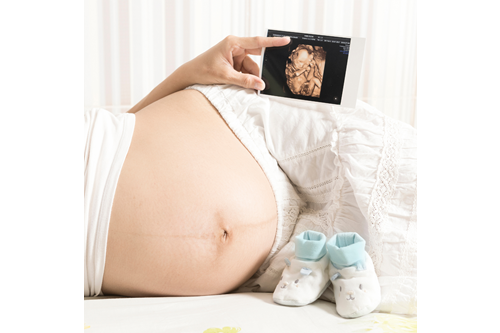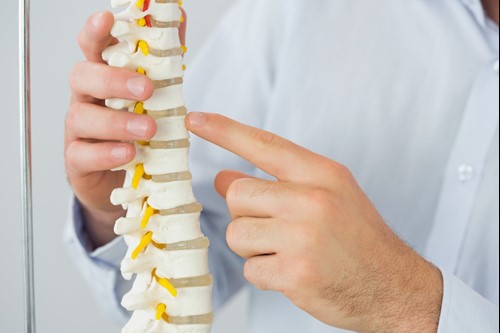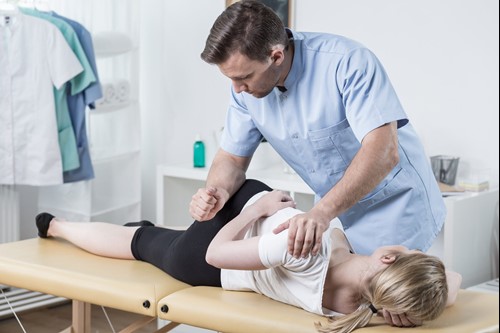Pregnancy Care
When a woman is pregnant, her body goes through many physical and hormonal changes while her baby develops in the womb. To ensure the health of mother and child, regular checkups with an obstetrician are important to monitor the pregnancy. While many women breeze through pregnancy without any symptoms or issues, others may be very uncomfortable, develop conditions like gestational diabetes, or even experience fetal developmental issues. Regular pregnancy care ensures that the woman’s wellbeing is supported throughout this exciting time of her life and that if any conditions arise, the doctor is able to diagnose and treat the condition as early as possible.
How Often Do I Need to See an Obstetrician While I’m Pregnant?
Unless a woman is experiencing a high-risk pregnancy, she will see her doctor every 4 weeks for the first 28 weeks of gestation, then biweekly until week 36, and then weekly until the baby is born. High-risk pregnancies are classified as when the health of the mother or baby is compromised and could result in higher risks during gestation or delivery. These frequent checkups allow the obstetrician to monitor the health of the mother and the development of the baby. The frequency of visits allows the doctor to make sure that everything is developing as expected and provides the opportunity to diagnose any potential issues as early as possible.
What Can I Expect During an Appointment with an Obstetrician?
Your obstetrician will perform several routine health checks and tests, including blood work, measuring your weight and blood pressure, and collection of urine samples. As the pregnancy progresses, your doctor measures the growth and development of your baby with ultrasounds. The doctor also checks the heart rate of the fetus and may perform tests to ensure your baby is healthy and developing as expected. Once the exam is complete, you can expect to receive guidance on what to expect during the next few weeks until your next appointment. You will have an opportunity to ask questions about your health and any symptoms you are experiencing with your pregnancy.

Ultrasound
2D-Ultrasound

3D-Ultrasound

Women from throughout southeastern Idaho benefit from the in-office ultrasound services offered by the providers and technicians at Leavitt Women’s Healthcare, in Idaho Falls, Idaho.
What is an Ultrasound?
An ultrasound is a noninvasive procedure that is able to monitor body parts without requiring surgical intervention. It utilizes a small, wand-like device to transmit sound waves through the body in order to create a diagram of the organs, tissues, developing baby, or body structure. It allows the doctor to have a look at the existing system without causing pain or discomfort. It is frequently performed during routine wellness checkups. If complications are noticed, a doctor may then perform a small incision to take a tissue sample for greater analysis in the lab. This is uncommon, though, and most women will only receive the ultrasound.
What Happens During the Procedure?
Patients are able to have ultrasounds at the Leavitt Women’s Healthcare offices. The patient lies on an examination table with the belly exposed. An ultrasound technician places a gel on the skin to amplify the sound waves emitted by the ultrasound want. The wand is then placed directly on the skin and transmitted through the body. Through the readings on the screen, the doctor is able to monitor the pregnancy on a computer screen. This procedure does not typically take long, and the patient can bring a partner, family member, or friend with them to the procedure. The doctors at Leavitt Women’s Healthcare are skilled in providing ultrasounds and do so with the highest degree of care and professionalism for each of their patients.
Do I Need to Do Anything to Prepare for an Ultrasound?
Typically, there is nothing special to do to prepare for an ultrasound. Once in the office, a patient will change into a dressing gown for their examination or open her shirt to reveal her abdomen. During the procedure, a woman is usually required to lie face-up on an examination table. Additionally, your doctor may have some orders that will need to be followed depending on the type of scan indicated.
High Risk Management
A high risk pregnancy means that you or your baby could be at risk of health problems before, during, or after delivery or that you or your baby have developed a medical condition during pregnancy that needs special monitoring or care.
Some contributing factors of high risk pregnancies may include:
- Advanced maternal age. Mothers older than age 35 are at higher risk for pregnancy complications.
- Lifestyle choices. Drinking alcohol, smoking and using illegal drugs creates pregnancy risks.
- Maternal health problems including but not limited to infections, heart disorders, high blood pressure, diabetes, obesity, nerve disorders and thyroid disorders can increase pregnancy risks.
- Pregnancy complications. Various complications that develop during pregnancy can pose risks, such as abnormal placenta, fetal growth restriction, and Rh sensitization..
- Multiple pregnancy. Women carrying multiple babies are at higher risk.
- Pregnancy history. You may have higher risks if you have had complications with pregnancy and/or delivery in the past. These include gestational diabetes, preeclampsia and premature birth.


NST
NST, or non-stress test, is a common screening test used during the third trimester of pregnancy. A cardiotocograph is used to monitor the baby’s heart rate and responsiveness in a non-stressful environment as well as the presence or absence of contractions.
This prenatal test lasts about 45 minutes and is safe, straightforward and noninvasive. We have comfortable rooms and chairs to accommodate the mother during these tests.
There are several reasons why we may want a pregnant mother to come in for an NST, and it doesn’t always mean that something is wrong.
Some reasons include:
- Preeclampsia
- Gestational diabetes
- Underlying medical conditions like type 1 diabetes, high blood pressure, heart disease, etc.
- Twins, or multiple babies
- RH incompatibility
- Low amniotic fluid level
- You are past your due date and baby hasn’t come
- Baby is measuring small or isn’t very active
- History of pregnancy complications
Midwifery
Our Certified Nurse Midwives are healthcare providers specializing in pregnancy and childbirth. They seek to educate, nurture, and provide hands-on care, creating a trusting, confident and supportive experience before, during, and after birth.
Our midwives are nurse practitioners that have expanded their education into midwifery. They are trained to provide comprehensive women’s healthcare, prenatal care and education, guide labor and birth, address complications, and care for newborns. They are adept in identifying when patients require obstetrical attention and work closely with our doctors to provide quality and exceptional care.
Postpartum Care

We understand that adapting after labor and delivery is beautiful but can also be challenging and different than we imagine. At Leavitt Women’s Healthcare we care about the physical, mental, and emotional well-being of you and your family. Our postpartum care is designed to offer the support you need to make the transition healthy and positive.
You can expect to come in 2 weeks and 6 weeks after a C-Section and 6 weeks after a vaginal birth. Feel free to call or schedule earlier if you have any concerns or questions. We will do a physical examination, talk about how you and your family are adapting, discuss your desired birth control options, talk about breast and bottle feeding, and other related topics.
Remember! You don’t have to wait for your postpartum visit, if you need support, are having issues, have concerns or questions, call. We will get you in.
Bone Manipulation
Women from throughout southeastern Idaho benefit from the osteopathic training of several of the doctors at Leavitt Women’s Healthcare, located in Idaho Falls, Idaho. The specially trained doctors are able to provide bone manipulation treatments to ease some of the physical discomfort associated with pregnancy.
How Does Bone Manipulation Help Pregnancy?

The health and well-being of a pregnant woman are essential, and bone manipulation can have a positive effect on both mom and child. Proper nervous system and spinal function aids healthy development of the baby and can help the mother feel comfortable and fit throughout her pregnancy. The effects of bone manipulation during pregnancy extend beyond treating pain. By ensuring that the pelvis and spine are in proper alignment and able to move correctly, bone manipulation can ensure that the developing baby has plenty of room to grow within the womb. Maintaining proper alignment, motion, and strength throughout pregnancy can also increase the mother’s chance of having a safe and natural delivery.
Bone Manipulation While I’m Pregnant?

A woman’s body goes through many physical changes during pregnancy affecting the alignment of the spine and the positioning of the pelvic bones. The increased curve of the spine, protruding abdomen, pelvic changes, and postural adaptions are often the root cause of much of the discomfort experienced by the mother. In order to maintain optimal health and well-being throughout pregnancy, many women find that bone manipulation protects the alignment of their spines and pelvises resulting in less pain and a stronger, healthier body. In some cases, if your spine and pelvis are out of correct alignment, it can make it difficult for the baby to move into the correct position for delivery.
Is Bone Manipulation Safe During Pregnancy?

Yes, when carried out by a trained osteopathic doctor, spinal and pelvic adjustments are safe during pregnancy. The osteopathic specialists at Leavitt Women’s Healthcare have had special training in the care of pregnant women and the many changes the body goes through during gestation. Additionally, many women choose bone manipulation because it doesn’t involve the use of any drugs or medications that may not be safe for the development of their babies.
Infant Circumcision
What is Circumcision?
Infant boys often have their foreskin, a layer of skin that covers the glans of his penis. This quick surgical procedure is often performed before the newborn is even released from the hospital, although if the baby is not healthy, circumcision may be postponed. Circumcision is entirely elective. There is no medical reason for the procedure to be carried out, although in American society, it is considered normal. Recovery from the surgery is quick and usually does not cause any complications.
Why Do Parents Choose to Circumcise Their Sons?
Some people believe that circumcision is more hygienic as a discharge can build up under the foreskin which can lead to odor or infection. However, with proper cleaning technique, this can be avoided. For some people, circumcision is a religious practice, and others want their sons to look the same as their father or peers. Circumcised penises also have a lower risk of contracting a urinary tract infection. The doctors at Leavitt Women’s Healthcare have many years of experience in performing this routine surgical procedure and would be happy to assist any family who wants to circumcise an infant.
What Happens During the Circumcision Procedure?
The procedure only takes a few minutes. The penis and foreskin are cleaned, and an anesthetic is applied. Then, a special clamp is applied to the penis, and the foreskin is trimmed away. After the procedure, petroleum jelly and a bandage are applied to prevent the penis from rubbing against the diaper and becoming irritated. After surgery, the bandage will fall off the next time the baby urinates, and parents will need to keep the baby’s penis clean and bandaged until the skin heals, usually within 7-10 days. Parents should use a gentle soap and water to keep the penis clean and change diapers frequently to prevent a wet or dirty diaper from causing irritation.

Genetic Screening
Genetic Screening helps to identify potential health concerns of your baby.
An outside company bills your insurance for this test. We invite patients to call each company prior to having your blood drawn to help you decide which option will work best for you and with any and all billing questions.
If you have an interest in Genetic Screening, contact our office for more information on current companies.
Explore More

OUR OFFICE
Leavitt Women's Healthcare
1550 Elk Creek Dr.,
Idaho Falls, ID 83404
Leavitt Women's Express Care
3339 Valencia Dr.,
Idaho Falls, ID 83404
OFFICE HOURS
Monday - Friday:
8 AM - 12 PM
1 PM - 5 PM
OFFICE HOURS
Monday - Friday:
7 AM - 7 PM
Saturday:
9 AM - 1 PM


